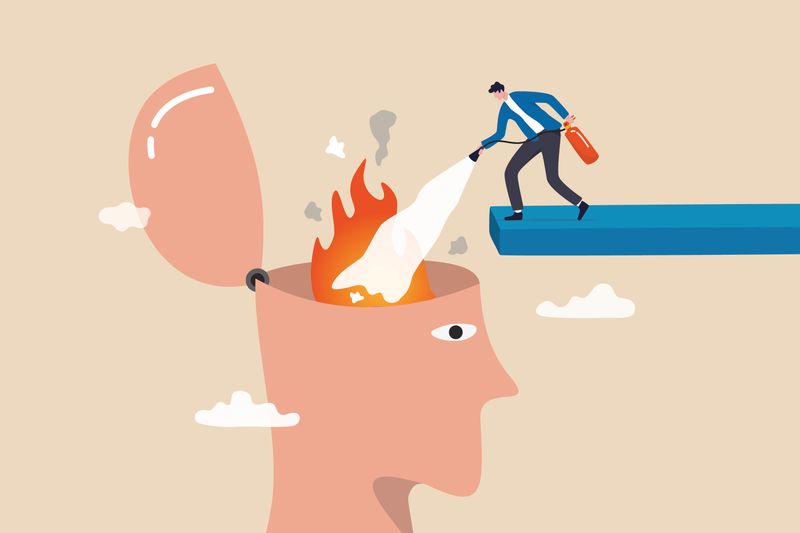17 Signs You Were The Good Child Growing Up And It Cost You More Than You Realized
Being the ‘good child’ often comes with hidden costs that manifest in adulthood. This post delves into how early family dynamics foster perfectionism, people-pleasing, and self-suppression, which can lead to challenges later in life.
Each sign reflects a behavior or belief developed in childhood to maintain harmony and gain approval, but these can hinder personal growth and well-being as an adult.
1. You say yes when you want to say no

Always agreeing becomes second nature, even when it’s against your wishes. This stems from an ingrained need to please others, fearing that saying no might disappoint or upset. Over time, this habit leads to an accumulation of responsibilities that feel overwhelming.
It’s a struggle to voice your true desires, as doing so feels selfish or unacceptable. This internal conflict often results in emotional exhaustion, feeling torn between personal needs and external expectations.
The constant ‘yes’ is not just about compliance but a deeper fear of rejection or conflict.
2. You shrink your needs to avoid conflict

Suppressing your needs becomes a survival tactic, learned early to maintain family peace. This often translates into adulthood as a pattern of self-denial, where expressing needs feels like an invitation for conflict.
You likely avoid voicing preferences, thinking others’ needs hold more weight. This self-suppression can silently erode self-esteem, as your own desires remain unexpressed and unfulfilled.
Living this way fosters resentment and a sense of invisibility, as your needs are perpetually sidelined. It’s a lonely path, often walked in silence to keep the peace.
3. You excel but never feel good enough

Despite accolades and successes, there’s a nagging feeling of inadequacy. Achievements are never enough, as the bar keeps rising. This stems from a childhood of high expectations, where excellence was the norm rather than the exception.
The pursuit of perfection becomes exhausting, yet the fear of failing to meet standards prevents you from stopping. The joy of accomplishment is overshadowed by the pressure to do more.
This cycle of relentless striving leads to burnout, where nothing ever feels truly satisfying or earned.
4. You panic when someone’s upset with you

Conflict induces an overwhelming anxiety, as being the cause of someone’s displeasure feels catastrophic. This reaction is rooted in a childhood where harmony was upheld at personal cost.
The thought of someone being upset triggers frantic attempts to mend the situation, often at your own expense. This behavior can lead to people taking advantage of your need to smooth things over.
Navigating relationships becomes fraught with tension, as the fear of upsetting others overshadows genuine interactions.
5. You learned to anticipate others’ emotions

An acute sensitivity to others’ emotional states is often developed in turbulent family environments. You become skilled in reading moods, an ability honed to preemptively address potential conflicts.
While this skill can be beneficial, it often leads to hyper-vigilance and anxiety, as you’re constantly on alert. This heightened awareness can detract from attending to your own emotions and needs.
Relationships may suffer as you prioritize others’ feelings over genuine connection, making interactions feel one-sided.
6. You crave praise and fear criticism

The dual drive for praise and fear of criticism roots from a childhood where validation was conditional. Praise becomes a marker of self-worth, while criticism feels like a threat to identity.
This can lead to an external validation seeking behavior, where self-esteem hinges on others’ opinions. Praise gives a fleeting sense of worth, while criticism can cause emotional upheaval.
Navigating life with this mindset creates a dependency on feedback for self-assurance, often leading to insecurity.
7. You’re deeply uncomfortable with praise

Despite a desire for recognition, receiving praise feels unsettling. Compliments trigger doubt, questioning the sincerity or fearing future expectations. This discomfort with praise originates from a childhood where approval was rare or conditional.
Praise may feel undeserved, causing internal conflict and self-criticism. The acceptance of compliments becomes a mental battle, overshadowed by fears of inadequacy.
This paradoxical experience can lead to a reluctance to shine, as the discomfort of praise outweighs its benefits.
8. You feel guilty taking up space

Feeling guilty for occupying space is a common trait among those who were molded to be the ‘good child.’ This mindset stems from a family dynamic that prioritized others’ needs over yours.
The belief that your existence is burdensome leads to minimizing your presence, both physically and emotionally. This can result in a life of invisibility, where asserting yourself feels like an imposition.
Such self-imposed constraints stifle personal growth, leaving you trapped in a cycle of self-denial.
9. You suppress anger to “keep the peace”

Expressing anger was likely discouraged in your upbringing, labeled as disruptive or unacceptable. As an adult, this becomes a habit of suppressing emotions to maintain harmony.
The fear of conflict leads to internalizing feelings, causing stress and resentment. Over time, this suppression can manifest as physical ailments or emotional outbursts when the bottled-up emotions become overwhelming.
This cycle of suppression hinders authentic expression, making genuine connections challenging.
10. You believe love must be earned

The belief that love is conditional often stems from a childhood where affection was tied to achievement. This mindset leads to striving for perfection in relationships, to avoid losing love.
This approach to love can create stress and anxiety, as you constantly seek to prove your worth. The fear of not being good enough for love can undermine intimacy and trust.
Navigating relationships with this belief can cause strain, as the pressure to earn love overshadows genuine affection.
11. You don’t know who you are outside of roles

A life spent fulfilling roles leaves little room for personal identity development. Growing up, you played parts to maintain family harmony, but now, you struggle to identify your true self.
The obligation to fit into predefined roles stifles individuality, leading to a sense of confusion about personal desires and values. This lack of self-knowledge can cause dissatisfaction and aimlessness.
Discovering who you are outside these roles is a challenging yet essential journey for authentic living.
12. You over-function in all your relationships

Taking on too much in relationships is often a learned behavior from childhood, where over-functioning was a way to gain approval. As an adult, this translates into taking on excessive responsibilities at the expense of personal well-being.
This habit of doing more than your share creates an imbalanced dynamic, leading to burnout. While the intention is to help, it often results in feeling unappreciated and overwhelmed.
Balancing responsibilities and well-being is crucial to breaking this cycle and fostering healthy relationships.
13. You rarely ask for help

Independence is a trait drilled into the ‘good child,’ making asking for help difficult. This self-reliance stems from a desire to appear capable without burdening others.
Refusing help becomes a source of pride, yet it can lead to isolation and undue stress. The fear of appearing weak or dependent prevents reaching out, even when overwhelmed.
This reluctance can hinder personal and professional growth, as collaboration and support are essential for success.
14. You fear disappointing anyone

The fear of disappointing others is deeply rooted in the ‘good child’ upbringing, where approval was paramount. This anxiety follows into adulthood, causing stress over meeting expectations.
The pressure to avoid disappointment can paralyze decision-making and hinder risk-taking, crucial for growth and development. This fear often leads to playing it safe to avoid potential failure or disapproval.
Learning to cope with disappointment constructively is vital for personal growth and self-acceptance.
15. You still seek approval from authority figures

Approval from authority figures often becomes a lifelong pursuit for those who were the ‘good child,’ rooted in a need for validation. This can create a dependency on external approval for self-worth.
While seeking mentorship is beneficial, over-reliance on approval can stifle independent thought and creativity. It also creates an imbalance in relationships, making personal validation challenging.
Learning to trust your judgment is essential for developing confidence and autonomy.
16. You never felt like a “kid” growing up

Childhood responsibilities can rob the joy of simply being a kid. Taking on adult-like roles early on fosters maturity but at the expense of carefree experiences.
This early burden leads to a lack of playfulness, affecting social interactions and personal development. The expectation to act ‘grown-up’ can cause chronic stress and anxiety.
Embracing your inner child later in life can help recover the joy of spontaneity and playfulness.
17. You confuse peace with people-pleasing

Equating peace with people-pleasing is a common trait learned from being the ‘good child.’ Avoiding conflict becomes synonymous with harmony, yet it often leads to compromising personal values.
This behavior creates superficial peace, where true feelings are masked to avoid confrontation. Over time, this can erode self-trust and lead to resentment.
Understanding that true peace involves authentic expression is crucial for personal integrity and well-being.







